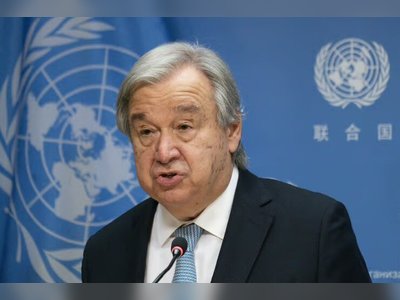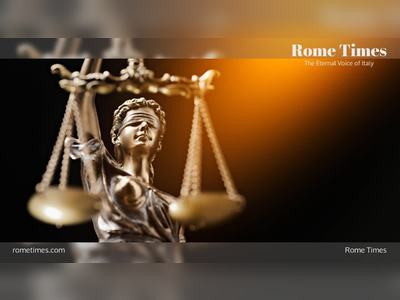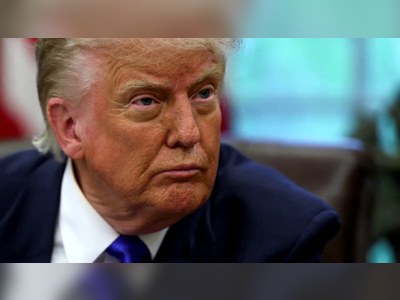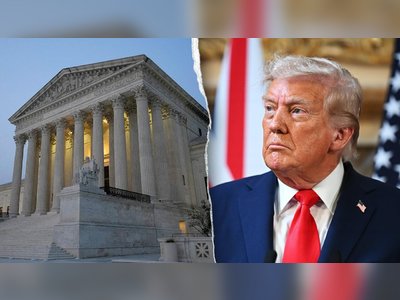
French Governance in Disarray as Prime Minister Faces Political and Social Challenges
Amidst tumultuous times, France's Prime Minister François Bayrou navigates pension reforms and political volatility.
France's political landscape is experiencing significant turbulence as the inner circle of President Emmanuel Macron faces upheaval following the resignation announcement of his top adviser.
This development adds to the growing challenges confronting Prime Minister François Bayrou, who emerged as France's fourth prime minister within the span of one year.
In a recent parliamentary speech, Bayrou, a centrist leader with a formidable political history, addressed the mounting domestic and international pressures on the French government.
His remarks extended beyond national borders, criticizing figures like tech mogul Elon Musk whom he accused of representing a 'new world disorder' detrimental to global stability and French sovereignty.
Domestically, Bayrou is grappling with the contentious issue of pension reform, a legacy inherited from President Macron.
The current pension system overhaul, notably the gradual rise in retirement age from 62 to 64, has sparked widespread opposition.
Bayrou has called for renewed dialogue with unions and employers in an effort to revisit the 2023 pension reforms.
He emphasized, however, that should consensus remain elusive, the existing legislation would persist in its current form.
With the 2025 budget plan still hanging in the balance, Bayrou faces an uphill battle within the National Assembly due to the lack of a legislative majority, a predicament reminiscent of his predecessor Michel Barnier's short-lived tenure.
The ruling coalition's fragility is further compounded by the specter of another no-confidence vote posed by the opposition Socialist party.
Bayrou also underscored the urgency of addressing France's burgeoning national debt, labeling it a 'sword of Damocles' threatening the nation’s economic viability and social welfare programs.
He advocated for proportional representation in electoral processes and stricter immigration regulations.
The French political scene is further fraught with international tensions.
The ongoing diplomatic row with Algeria over incendiary calls from social media influencers denouncing France spotlights deteriorating foreign relations.
Additionally, speculative rhetoric from the President-elect of the United States, Donald Trump, about territorial annexations—dismissed as outrageous by Bayrou and senior French officials—adds another layer of complexity to France’s diplomatic engagements.
In a parallel narrative, the French public's interest was captured by an extraordinary case of digital deception involving an interior designer who fell prey to an online scam masquerading as a romantic relationship with Hollywood star Brad Pitt.
Compounded mockery and mental health concerns led to the retraction of a TV program recounting her story, highlighting the societal impacts of digital vulnerabilities.
These multifaceted challenges illustrate the intricate dynamics at play in French politics as leadership attempts to navigate through a period marked by both internal strife and external pressures.
The road ahead for Prime Minister Bayrou and the Macron administration will require delicate balancing of reform efforts, political consensus-building, and effective international diplomacy.
This development adds to the growing challenges confronting Prime Minister François Bayrou, who emerged as France's fourth prime minister within the span of one year.
In a recent parliamentary speech, Bayrou, a centrist leader with a formidable political history, addressed the mounting domestic and international pressures on the French government.
His remarks extended beyond national borders, criticizing figures like tech mogul Elon Musk whom he accused of representing a 'new world disorder' detrimental to global stability and French sovereignty.
Domestically, Bayrou is grappling with the contentious issue of pension reform, a legacy inherited from President Macron.
The current pension system overhaul, notably the gradual rise in retirement age from 62 to 64, has sparked widespread opposition.
Bayrou has called for renewed dialogue with unions and employers in an effort to revisit the 2023 pension reforms.
He emphasized, however, that should consensus remain elusive, the existing legislation would persist in its current form.
With the 2025 budget plan still hanging in the balance, Bayrou faces an uphill battle within the National Assembly due to the lack of a legislative majority, a predicament reminiscent of his predecessor Michel Barnier's short-lived tenure.
The ruling coalition's fragility is further compounded by the specter of another no-confidence vote posed by the opposition Socialist party.
Bayrou also underscored the urgency of addressing France's burgeoning national debt, labeling it a 'sword of Damocles' threatening the nation’s economic viability and social welfare programs.
He advocated for proportional representation in electoral processes and stricter immigration regulations.
The French political scene is further fraught with international tensions.
The ongoing diplomatic row with Algeria over incendiary calls from social media influencers denouncing France spotlights deteriorating foreign relations.
Additionally, speculative rhetoric from the President-elect of the United States, Donald Trump, about territorial annexations—dismissed as outrageous by Bayrou and senior French officials—adds another layer of complexity to France’s diplomatic engagements.
In a parallel narrative, the French public's interest was captured by an extraordinary case of digital deception involving an interior designer who fell prey to an online scam masquerading as a romantic relationship with Hollywood star Brad Pitt.
Compounded mockery and mental health concerns led to the retraction of a TV program recounting her story, highlighting the societal impacts of digital vulnerabilities.
These multifaceted challenges illustrate the intricate dynamics at play in French politics as leadership attempts to navigate through a period marked by both internal strife and external pressures.
The road ahead for Prime Minister Bayrou and the Macron administration will require delicate balancing of reform efforts, political consensus-building, and effective international diplomacy.
Translation:
•
Translated by AI
AI Disclaimer: An advanced artificial intelligence (AI) system generated the content of this page on its own. This innovative technology conducts extensive research from a variety of reliable sources, performs rigorous fact-checking and verification, cleans up and balances biased or manipulated content, and presents a minimal factual summary that is just enough yet essential for you to function as an informed and educated citizen. Please keep in mind, however, that this system is an evolving technology, and as a result, the article may contain accidental inaccuracies or errors. We urge you to help us improve our site by reporting any inaccuracies you find using the "Contact Us" link at the bottom of this page. Your helpful feedback helps us improve our system and deliver more precise content. When you find an article of interest here, please look for the full and extensive coverage of this topic in traditional news sources, as they are written by professional journalists that we try to support, not replace. We appreciate your understanding and assistance.










